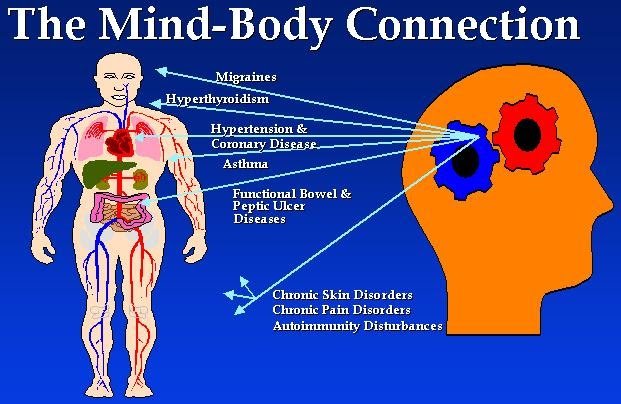The age-old adage, “Mind over matter,” holds more truth than we might realize. The intricate relationship between our mental and physical well-being has been a topic of fascination for centuries. Emerging research continues to underscore the profound impact that our thoughts and emotions have on our overall health.
Stress and Its Physical Manifestations
Stress, often stemming from negative thoughts, is a prime example of how our mental state affects our physical health. Chronic stress can lead to a range of health problems, including high blood pressure, weakened immune system, digestive issues, and heart disease. When we experience stress, our bodies release hormones like cortisol and adrenaline, preparing us for a “fight or flight” response. However, prolonged release of these stress hormones can harm our body over time.
The Placebo Effect: Mind’s Influence on Healing
The placebo effect is a phenomenon where a person experiences genuine improvements in their symptoms or condition after receiving a treatment with no active ingredients. This effect highlights the power of belief and the mind’s role in the healing process. It demonstrates that our thoughts and beliefs can influence our body’s physiological responses and ultimately impact our health outcomes.
Positive Thinking and Healing
Positive thinking and a hopeful outlook on life have been linked to better health outcomes. Studies have shown that individuals with a positive mindset tend to have stronger immune systems, reduced risk of chronic diseases, and faster recovery from illnesses. Positive thoughts can release endorphins, the body’s natural feel-good chemicals, promoting a sense of well-being and overall health.
Mindfulness and Stress Reduction
Mindfulness, a practice involving being fully present and aware of the current moment, has gained traction for its profound impact on reducing stress and improving mental health. By practicing mindfulness through meditation, deep breathing, or other techniques, individuals can lower their stress levels, leading to a positive effect on their physical health as well.
Psychosomatic Illnesses: The Mind-Body Connection in Action
Psychosomatic illnesses are physical conditions that are influenced by emotional or psychological factors. These can include conditions like irritable bowel syndrome (IBS), migraines, and chronic pain. The mind-body connection is evident in these cases, where emotional stress or trauma can exacerbate or even trigger physical symptoms.
Chronic Negativity and Health Risks
Consistent negative thoughts, attitudes, and emotions can pose significant health risks. Prolonged negativity has been associated with higher levels of stress, inflammation in the body, weaker immune response, and increased risk of chronic diseases such as cardiovascular issues and diabetes. Breaking the cycle of negative thinking is vital for overall well-being.
Holistic Approaches for a Balanced Mind-Body Connection
To foster a harmonious mind-body connection, adopting a holistic approach is key. This includes practices like regular exercise, a healthy diet, sufficient sleep, stress management techniques, social connections, and nurturing a positive outlook on life. Integrating these elements into our daily lives can nurture a balanced mind-body relationship and promote optimal health.
Conclusion
The mind-body connection is a complex and powerful relationship that highlights the profound impact our thoughts and emotions can have on our physical health. Understanding and nurturing this connection is fundamental to achieving holistic well-being. By cultivating positive thoughts, managing stress, and adopting a balanced lifestyle, we empower ourselves to live healthier, happier lives.

